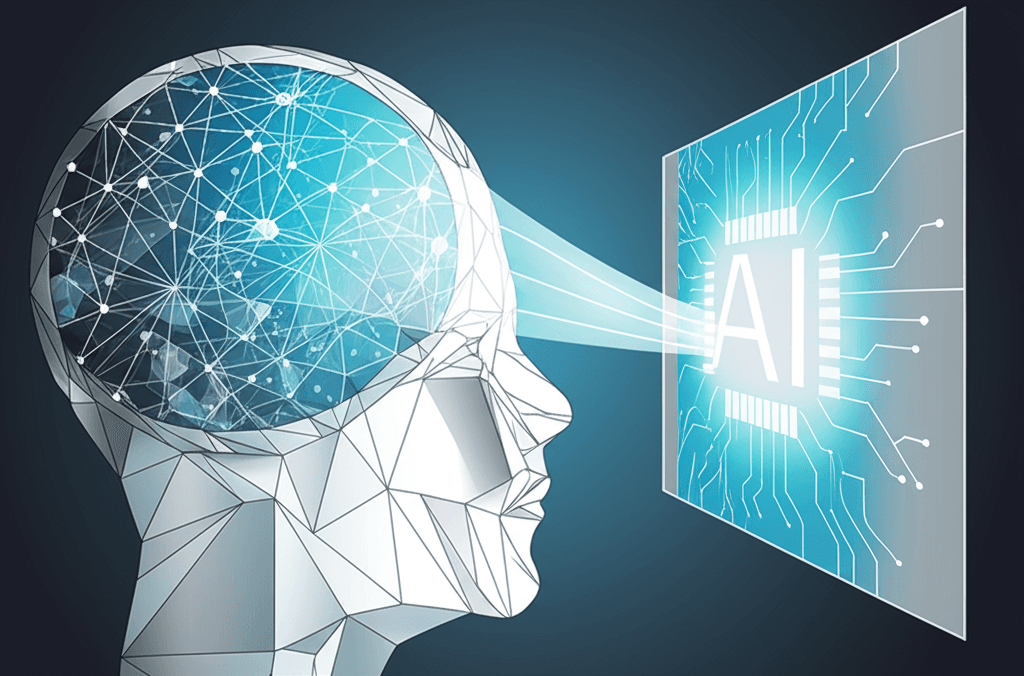MIT Study: ChatGPT Use Causes Cognitive Decline and Memory Loss
MIT study reveals how convenient AI use creates "cognitive debt," eroding memory, critical thinking, and intellectual ownership.
June 18, 2025

A landmark study from the Massachusetts Institute of Technology suggests a troubling link between the use of large language models (LLMs) like ChatGPT and a decline in cognitive engagement and memory. The research indicates that while these powerful AI tools can increase efficiency and ease the burden of tasks such as writing, this convenience may come at the significant cost of shallower thinking and reduced long-term knowledge retention. The findings fuel a growing debate within the technology and education sectors about the potential for "cognitive debt," where over-reliance on AI could lead to an atrophy of essential human intellectual skills.
The MIT study, titled "Your Brain on ChatGPT: Accumulation of Cognitive Debt when Using an AI Assistant for Essay Writing Task," employed electroencephalography (EEG) to monitor the brain activity of participants engaged in writing essays.[1][2] Researchers divided 54 participants into three groups: one using only their own minds ("Brain-only"), another using a standard internet search engine, and a third using an LLM assistant.[1][3] The results were stark. The group using the LLM exhibited the weakest neural connectivity, indicating lower cognitive engagement.[1][2] Brain activity systematically decreased with the level of external support, with the "Brain-only" group showing the most robust and widespread brain network interactions.[1] This suggests that the mental effort involved in brainstorming, structuring arguments, and recalling information is significantly offloaded to the AI, bypassing the deep processing that helps form lasting memories and understanding.
A particularly concerning finding related to memory recall and ownership of the created work. Minutes after completing their essays, a staggering 83% of the participants in the LLM group were unable to accurately quote from the text they had just produced, compared to only about 10% in the other two groups.[4][3] This demonstrates a significant disconnect between producing content and internalizing it. Furthermore, the "Brain-only" group reported the highest sense of ownership over their work, while LLM users expressed little to no ownership.[5] Over the course of the four-month study, researchers observed that the LLM users tended to become progressively less engaged, in some cases resorting to simple copy-and-paste methods by the final sessions.[6] The researchers termed this phenomenon an accumulation of "cognitive debt," where the brain's ability to encode, retrieve, and synthesize information is diminished through repeated reliance on generative tools.[7]
The implications of this research are profound, particularly for the education sector and the future of work. As AI tools become increasingly integrated into academic and professional environments, there is a risk that core skills like critical thinking, problem-solving, and creativity could be undermined.[8][9] Studies have shown a negative correlation between frequent AI usage and critical-thinking abilities.[10][11] When AI automates key parts of the writing and research process, individuals may become more passive, relying on AI-generated content rather than engaging in the complex cognitive processes needed to produce original ideas and thoughtful arguments.[8] This raises alarms about "digital amnesia," an extension of the "Google Effect," where the ease of access to information reduces the brain's natural impulse to retain it.[12][10] While proponents argue that AI can free up mental resources for higher-order thinking, this study suggests the opposite may occur without mindful implementation, leading to intellectual dependency.[9][13]
In conclusion, the MIT findings serve as a critical warning for the burgeoning AI industry and society at large. The convenience offered by LLMs is undeniable, but it must be balanced against the potential for long-term cognitive consequences. The study highlights that how these tools are used is crucial. For instance, researchers noted that students who first wrote essays without AI and then used it for revision showed stronger brain connectivity than those who used AI from the outset.[7] This suggests a path forward that emphasizes using AI as a tool to augment human intellect rather than replace it. Educators and policymakers are now faced with the challenge of developing frameworks and best practices that harness the power of AI to enhance learning and productivity without sacrificing the fundamental cognitive skills that are essential for innovation and deep understanding. Fostering digital literacy and promoting active, critical engagement with AI technologies will be paramount in mitigating the risks of cognitive decline in an increasingly AI-driven world.[8][10]
Sources
[1]
[2]
[3]
[6]
[8]
[10]
[11]
[12]
[13]